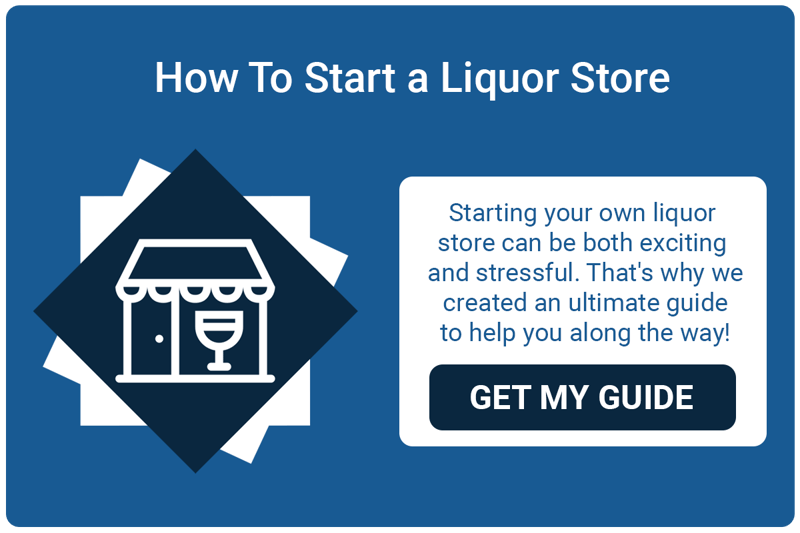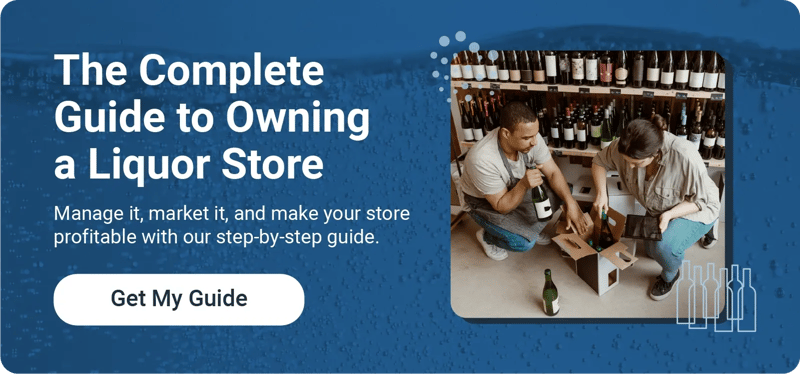Before you can run a liquor store, you need to get a liquor license — but that’s easier said than done.
Thanks to a scattered jumble of state and local liquor laws, getting a liquor license can be a complicated, drawn out, and frustrating process.
However, we’re here to tell you that with some forethought and careful planning, you can smooth out the process and get up and running in no time.
Here are seven common mistakes to avoid when getting a liquor license.
1. Not Looking at State and Local Requirements
One of the reasons getting a liquor license is so complicated in the United States is that liquor laws are made entirely at the local level. In fact, laws and license requirements can vary at the state, county, and city levels.
When you apply for a liquor license, contact your state’s alcohol control board to get started. Then once you have a location in mind, get in touch with the local government to see if there are any additional requirements for your town or city.
While it might seem tedious, trying to take shortcuts in the initial application process is a surefire ticket to wasted money and lost time.

2. Not Getting the Right Subclass of Liquor License
In most cases, there will be several classes of liquor licenses, depending on the type of business you have and the products you sell.
The first and most important distinction is whether you need an on-premises or off-premises liquor license.
On-premise liquor licenses are for bars, restaurants, or anywhere liquor is consumed in the actual business. Off-premises licenses are reserved for liquor stores, wine stores, or anywhere alcohol is sold but consumed elsewhere.
In some instances, there are additional subclasses of licenses. For example:
- Retail liquor license (for selling wine, beer, and liquor)
- Grocery store wine and beer license
- Hotel liquor license
- Restaurant liquor license
- Beer and wine retail license
Know exactly which type of liquor license you need, as they may have different requirements and costs associated.
3. Not Checking Your Application Paperwork Thoroughly
We know better than most how complicated getting a liquor license can be. Unfortunately, just one mistake can lead to having to start the process all over again.
After you figure out your local requirements, determine the right license type, and get all your paperwork together, it’s time to create a checklist of documents and triple check that you have them all before submitting your final application.
In states like New York, a normal liquor license approval can take five to seven months. A single mistake will reset the clock, and every day you’re not open is a day that you’re not making money.
Typically, a liquor license application requires various bits of paperwork, including:
Again, the specific paperwork you need will depend on your state and local government, so double-check your state’s document requirements.
4. Failing To Check Zoning Rules
It’s easy to fall in love with a location and assume everything will magically work out. However, sometimes, blind hope can lead to costly delays or worse.
Many states and counties have specific zoning rules that determine what kinds of businesses (and how many of those businesses) can be in a particular area. If your location is in a zoning area that doesn’t support alcohol sales, you may be out of luck.
Common zoning rules for liquor stores include:
- Requiring a certain distance from schools and residences
- Not having multiple liquor stores within a specific area
- Requirements to notify any nearby neighborhoods
So, before you even think of applying for your license, double-check your local zoning rules.
5. Failing to Check IDs
Once you have a liquor license, it’s up to you to do everything to not lose it — including not selling alcohol to minors.
Train your employees on how to properly check IDs and spot fakes, and what to do in case you spot a counterfeit.
Remember, when you check IDs, don’t just look at the date of birth; check to see if the license is still valid. Some states even run stings where they send someone who’s not underage but has an expired license to buy alcohol.
The best way to stay compliant is to use an ID scanner that connects directly with your point of sale (POS) system. This lets you use a barcode scanner to quickly validate an ID without slowing down checkout, allowing you to stay compliant even during peak hours.
6. Not Paying License Renewal Fees
In most states, you have to pay a one-time fee when you get your license and then renew that license every year.
Many liquor store owners, caught up with running their business, forget the latter which can lead to fines or a suspension of their license. There is usually a grace period to submit a late license fee, but in some states, that increases the price of the renewal (and wait too long and you have to apply for a new license).
Don’t risk it. Make sure you know the dates of your liquor and business license renewals, set reminders, and have them paid well in advance. If an issue arises, you’ll have plenty of time to handle it before it becomes a problem.
7. Letting Underaged Staff Serve Alcohol
In many states, the age at which you can serve alcohol tends to be younger than the age you can drink it. However, in most cases, there are still strict age limits for what age you have to be to serve alcohol and, therefore, who you can hire.
There are also distinctions between whether the alcohol is being sold in a retail environment or at a bar (and further distinctions on whether a minor is pouring the alcohol or just serving it).
Either way, don’t risk your liquor license by being lax.
To keep your store compliant, check your state laws to see what the minimum age for serving and transporting alcohol is. Additionally, use your liquor store POS system to set employee access controls so that only authorized employees can use certain systems.
Learn Everything You Need To Run a Successful Liquor Store With Our Free Guide
Running a liquor store can be tough — but done the right way, it can be both rewarding and profitable.
At Bottle POS, we have over a decade of experience working closely with liquor stores, wine shops, and other alcohol retailers across the United States.
To help put new liquor store owners on the right track and help existing store owners learn some new tricks, we’ve compiled everything we’ve learned about running a liquor store into a comprehensive guide that will help you master:
- Marketing and promotions
- Store display and marketing
- Pricing strategy
- Inventory management
…and more.
Download your free guide today to drive sales, keep customers happy, and smash the competition.
